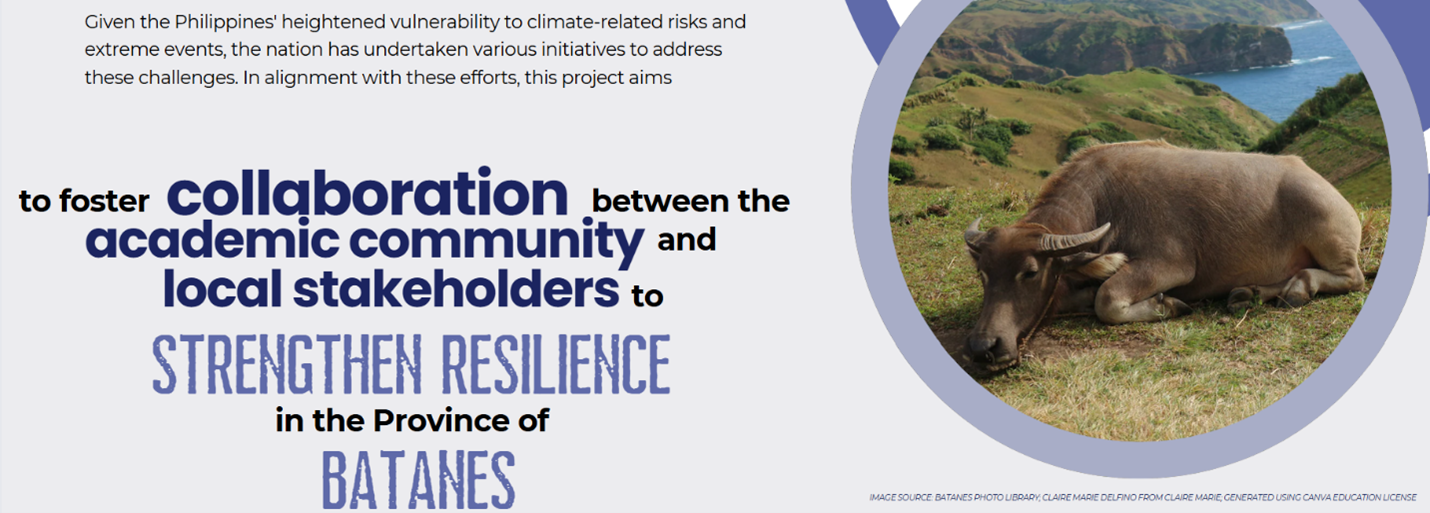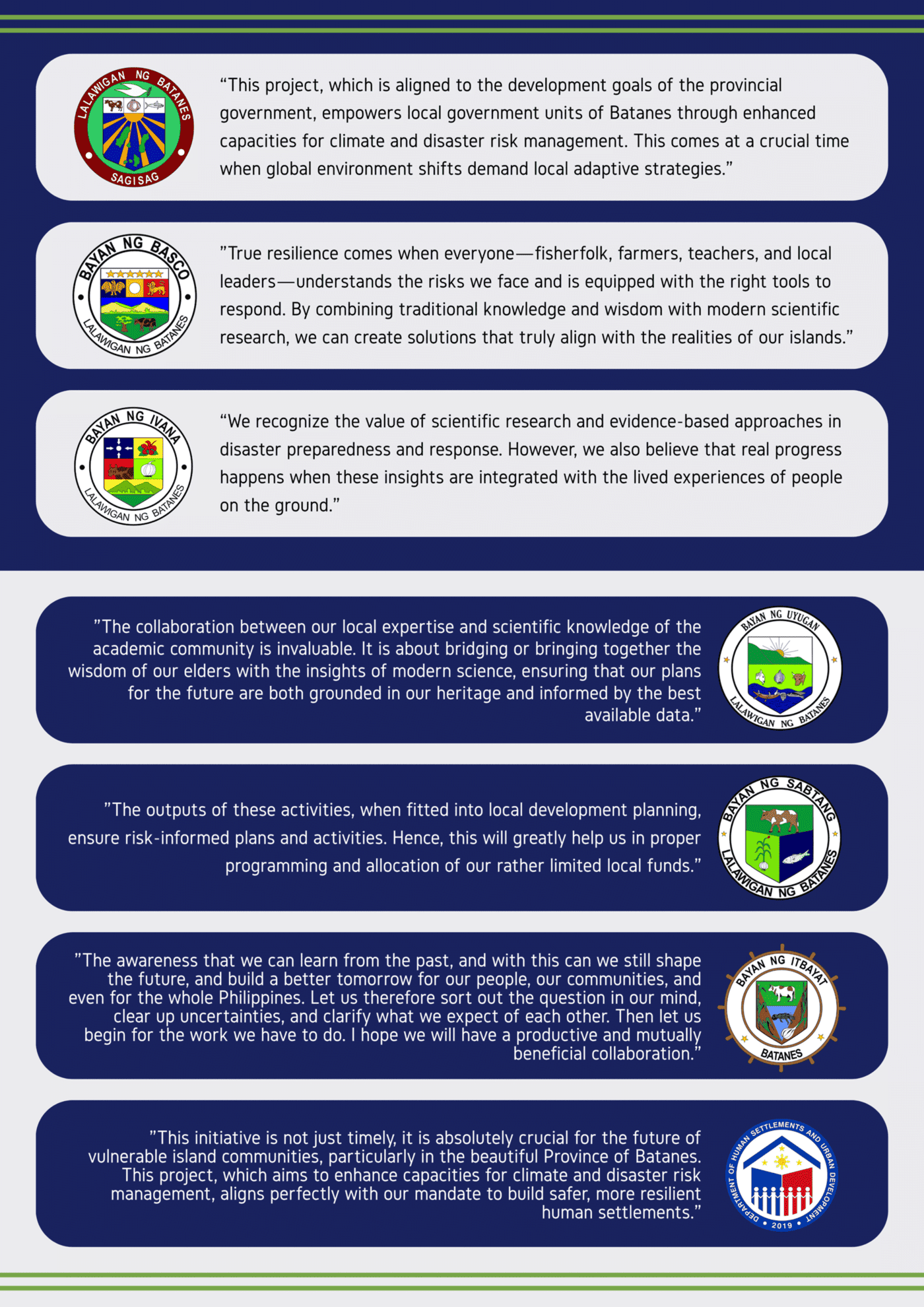by: Joy T. Santiago
The island communities of Batanes are widely recognized for their cultural resilience and deep-rooted traditional knowledge, which has historically enabled them to adapt effectively to a range of environmental stressors. However, despite these inherent strengths, these communities face increasing exposure to the escalating impacts of climate-related hazards and extreme weather events. Strengthening local adaptive capacities through inclusive, science-based interventions has therefore become a critical priority.

In response to this need, the University of the Philippines Resilience Institute (UP RI), with support from the Asia-Pacific Network for Global Change Research, has launched the project Bridging Academic Researchers and Vulnerable Island Communities in the Philippines: Enhancing the Climate and Disaster Risk Management Capacities of Municipalities in Batanes, Philippines. This initiative aims to support the development of a more empowered and climate-resilient Batanes by facilitating the integration of traditional ecological knowledge with contemporary scientific practices.
Message from Dr. Alfredo Mahar Francisco A. Lagmay, Executive Director, UP Resilience Institute, delivered at the Launch of the APN-Batanes Project
To achieve this goal, the project emphasizes participatory capacity-building strategies, ensuring that local stakeholders are meaningfully engaged at every stage. A key component of the initiative is the implementation of a probabilistic risk assessment, designed to generate an evidence-based understanding of local vulnerabilities and inform the development of science-driven, context-sensitive policies for disaster risk reduction and climate adaptation.

To formally launch the project and foster collaboration among key stakeholders, a virtual inception event was held on March 28, 2025. The event brought together local chief executives, department heads, and municipal personnel from across Batanes, alongside representatives from the Provincial Government of Batanes, the Department of Human Settlements and Urban Development (Region II), the Department of the Interior and Local Government (Region II), and the National Museum Batanes.
The launch event had four primary objectives:
- To introduce the project’s conceptual framework, goals, and significance to stakeholders;
- To present the implementation roadmap, including key milestones and timelines, with a strong emphasis on inclusivity;
- To identify potential avenues for stakeholder engagement; and
- To promote cross-sectoral networking and dialogue through an interactive open forum.
Participants voiced enthusiastic support for the project’s goals, marking a strong starting point for continued collaboration and collective ownership of Batanes’ resilience-building journey. During the launch, several stakeholders shared their insights and commitments, highlighting the importance of both scientific and community-based approaches:

Together, these perspectives affirm a collective commitment to resilience-building that honors the past, responds to present challenges, and envisions a safer, more sustainable future for Batanes.
